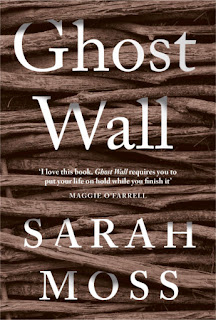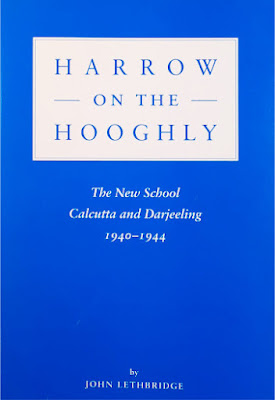Ghost Wall, by Sarah Moss
I finished this book hating someone. Someone who doesn't exist. Sarah Moss' writing can do that to you, and paradoxically the hate is fiercer for the fact that the villain of Ghost Wall isn't out-and-out evil; though he's not far off it.
It's 17 year old Sylvie's Dad, who signs the family up for a summer 'camp' experiencing Iron Age life up in Northumberland, organised by a university Professor, who's brought three of his students along. Her Dad is obsessed with the life of the pre-Roman peoples of Britain, of Northern England particularly. He's often drawn the family into this, so Sylvie and her Mum have often found theselves spending their holidays trudging aong ancient pathways, or going to museums to view ancient artifacts. And once he took Sylvie with him to see one of the bog people at an exhibition; a sacrificial victim her appearance preserved by the peat, who turned out to be a young girl not unlike Sylvie herself.
At this summer camp, although Prof Jim and his students are sleeping in tents, they're otherwise experiencing ancient life in many ways, notably in donning similar rough clothing and eating food they can hunt or forage. Sylvie's Dad Bill goes further, and obliges his family to sleep together in primitive straw cushioned bunks in the replica round house which was previously built at the site. She doesn't sleep well there, one of many ways in which her resilience is ground down. She gains a friend, in the one female student, Molly, who as some would see it, "isn't taking it seriously". Seems the Prof thinks her grades are weak. It makes Sylvie anxious when Molly goes off script and eg. goes off to the Spar to get some ice cream. Ice cream was unknown to the Celts.
Molly realises that Sylvie isn't anxious about stuff like that because she herself is taking it seriously, or due to those moor walking times with her Dad thanks to which she already does have lots of appropriate skills and knowledge. It's because she knows that if people break the 'rules', she and her Mum will cop it from her Dad. He hurts them. Mum has telling bruises on her arms. And she has the apathetic demeanour of someone utterly beaten down by Bill's domineering behaviour. Sylvie has marks on her legs and shoulders. Thhey're abused. Though this is an eternal theme, this rendering of a man controlling and physically hurting the women in his life is vivid and delivered with stripped down sensitivity by Sarah Moss.
The key to the story's power is the first person narration, from Sylvie's point of view. She's intelligent, perceptive and knowledgeable, in fact she has no problem with learning about nature, the land, the people who have lived there before and now. Of course her Dad is less interested in that last bit. She's been conditioned to her Dad's controlling nature all her life and despite now being 17, moving past an age when so many conflict with ther parents anyway, she finds it near impossible to call him out on what he's doing to his family. There's a scene in which he gives her a belting: it's just descriptive enough for us to feel it, without it being gratuitous (if the book is ever filmed, it'll be essential that the director takes note that that is avoided). Yet it is sickening and horrible, mainly because of her reaction to what is being done to her, or lack of it, I should say. I can't speak to my own experience but from what I have picked up, this is a very accurate depiction of abuse, of how a person is affected.
Where this story leads can be guessed. Little by little Bill and Professor 'Call Me Jim', for different motives, erode the walls of modern civilisation and it's a little bit Lord of the Flies. She's conditioned and singled out and can't resist when those two responsible adults come to her with a horrible proposal. Her Dad promises she won't be hurt but we know that for him it could never simply be play acting. The ending by the way;... um, well, at first sight you might think we should be told more, but on reflection I think it's the right place to end it, because of the sheer isolation of Sylvie's point of view, which ends at that point. We have to think that at the end of the book she's free.
Apologies if I've said too much there. The book is very short by the way, but it has a power way beyond its length. It's the second book of Moss' that I've read. In some ways it's odd that I wanted to read another, because I really didn't like any of the characters in the other one (Night Waking). But it was so well written, it sucked you so much into the situation of that story, and those characters were familiar and real. I've read some comments about this book Ghost Wall that point to a political theme, but I feel a shrug coming on about that. I think the instances they have picked out are there to show the sort of man Sylvie's Dad is. For me this book's driving theme is how love can be twisted and beaten and negated, and thankfully, how it can be found again.
I've been lent another Sarah Moss book, Cold Earth. I'm looking forward to reading that some time soon.




Comments
Post a Comment